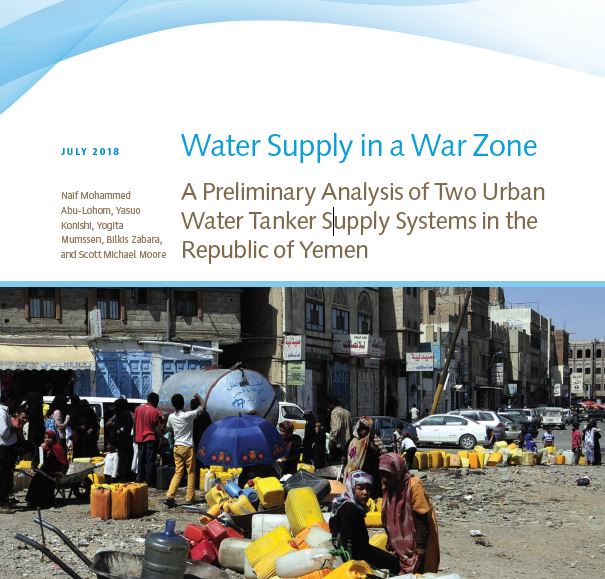Water Supply in A War Zone: A Preliminary Analysis of Two Urban Water Tanker Supply Systems in The Republic of Yemen
This discussion paper summarizes the results and implications of a study commissioned by the World Bank to conduct a rapid assessment of the state of private water tanker supply systems in two Yemeni cities, Sana’a and Aden. The study emanated from the World Bank’s Water, Sanitation, and Health (WASH) Poverty Diagnostic for the Republic of Yemen, which identified serious gaps in access to basic water and sanitation services (World Bank 2017). A combination of poverty, water scarcity, armed conflict, and warfare has produced serious challenges for both water supply and sanitation in Yemen. Despite this urgency, little recent data is available on the state of the country’s water supply and sanitation systems, in large part because key parts of the country remain inaccessible due to active conflict. The study described in this discussion paper accordingly presents one of the only detailed, survey-based assessments of water supply and sanitation in an active war zone. While it is based on a partial rather than a systematic survey, it highlights a number of key aspects of Yemen’s urban water supply and sanitation situation. First, as a result of pre-existing challenges exacerbated by recent conflict, there is a considerable gap in the urban water supply sector. Second, this gap is being filled largely by private tanker trucks, on which urban Yemenis are increasingly dependent. Third, while the tanker truck system plays a critical role in filling this gap in the formal water supply system, it raises serious questions with respect to affordability, health, environment, and water resources management. Overall, the study suggests the need for urgent interventions to improve water supply and sanitation in Yemen’s two largest cities.
